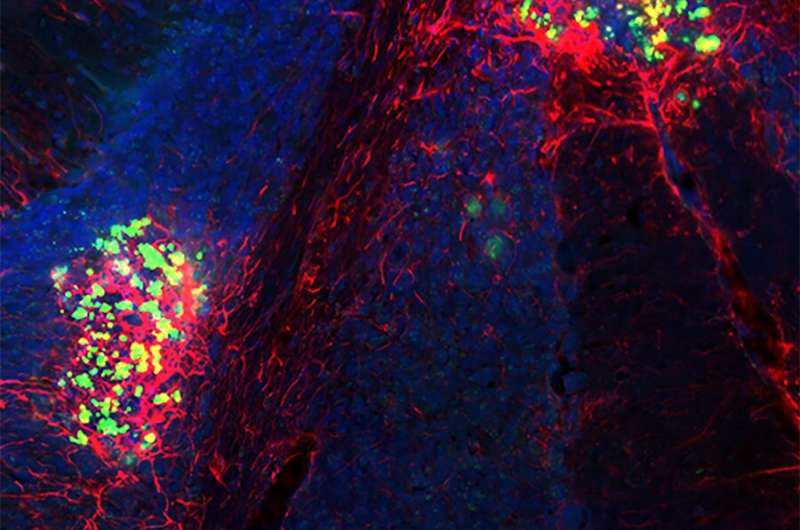Persistence of Zika virus in the brain causes long-term problems in mice

The Zika virus can remain in mouse brain for extended periods, leading to long-term neurological and behavioral consequences, according to a study published December 10 in the open-access journalPLOS Pathogensby Daniela Verthelyi of the US Food and Drug Administration, and colleagues.
Infections in the perinatal period are associated with lastingcognitive impairmentand increased risk for psychological disorders. The congenital brain malformations associated with Zikavirusinfections early in pregnancy are well documented. But the potential defects and long-term consequences associated with milder infections in late pregnancy and the perinatal period are less well understood. To address this knowledge gap, Verthelyi and colleagues exposed one-day-old mice to the Zika virus and monitored the neurological and behavioral consequences up to one year later.
The animals developed a transient neurological syndrome characterized by unsteady gait, tremors, and seizures 10 to 15 days after infection, but these symptoms subsided after one week, and most animals survived. Despite apparent recovery, Zika virus and inflammation were detected in the central nervous system of mice one year later. These older mice showed reduced volume of a brain region called the cerebellum, resulting in significant long-term deficits in motor function and coordination. In addition, the older mice showed anxiety, hyperactivity, and impulsive or risky behavior. Based on these findings, the authors recommend long-term neurological and behavioral monitoring of patients exposed to the virus at an early age, as well as anti-viral treatment to clear persistent reservoirs from the brain.
The authors conclude, "There is mounting evidence that emerging viruses like Zika and Chikungunya can establish reservoirs in immune privileged sites and play a role in development of chronic diseases".
















